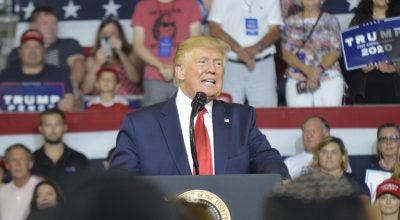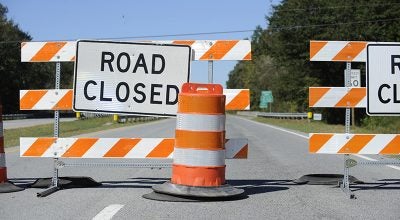A war on voting?
Published 1:00 am Wednesday, May 4, 2011
Damon Circosta is executive director of the North Carolina Center for Voter Education.
RALEIGH – Perhaps the most overused rhetorical ploy is when politicians declare a “war” on something.
Formal declarations of real war č the kind with tanks, missiles and opposing nations č are thankfully exceedingly rare. But lawmakers often declare war to attract attention to their cause. Think Lyndon Johnson’s “war on poverty” or Richard Nixon’s “war on drugs.” When a problem is so insidious that it merits a declaration of war, people take notice.
Given some of the recent bills proposed in the N.C. General Assembly, there seems to be a “war on voting.”
So far this session we have seen proposals that would eliminate a popular program allowing people to register to vote during early voting, decrease the days and times early voting is accessible, limit the verification methods used on Election Day to only certain types of photo identification, and require ballot instructions to be in English only. As if that wasn’t enough, the war on voting also includes a steep reduction in funding to our State Board of Elections and the end to programs that reduce corporate, union and other special-interest influence in elections.
I doubt we will see any lawmaker hold a press conference explaining why there are so many bills aimed at making it harder to vote while also making it easier for special-interest dollars to find their way into our political system. It’s much more popular to declare wars on societal ills like poverty and drugs than to declare war on civic participation and voting.
Telling people that you prefer they don’t participate in democracy won’t win you a lot of friends. But make no mistake. If these proposals find their way into law, people will have a more difficult time getting involved with elections, and those who wish to use big money to tilt things in their favor will have a much easier time.
On some level, we should expect to see a slew of election-related legislation. In 2010, for the first time in over a century, we saw control of both chambers of the General Assembly switch political parties.
When that happens there is a natural inclination by the new crowd to lock in their electoral gains by making it more difficult for voters who they think may not agree with them.
Democrats, when they were in charge, were not immune to such shenanigans, and Republicans appear to be operating from the same playbook. But lost in all of this partisan warfare is the notion that we did not elect this new crop of leadership to act like those who came before them. We elected them precisely because they told us that they would be different.
Over the last decade we have seen a sharp increase in voter frustration.
Part of this frustration certainly stems from disenchantment with how our elected officials comport themselves when they are tasked with setting up the rules for elections.
By trying to shape election law for short-term partisan gain, our politicians fuel voter discontent. Fewer and fewer of us feel inclined to participate in a process we see as tainted. And when only a handful of us get involved with politics, then our representative democracy doesnt really represent us at all.
No lawmaker would be so foolish as to come out and openly declare a war on voting, but it would be refreshingly honest to at least hear our elected officials say that they are in fact making these changes for their own electoral gain. At least then we citizens would be on notice that our democracy is under assault.
The Washington Daily News is allowing the publication of guest editorials from select individuals and organizations on issues of local and regional significance. The views expressed by guest editorialists do not necessarily reflect those of the Washington Daily News, its owners or employees. If you would like to be considered as a future editorialist, please send an e-mail with your name and intended topic to: news@wdnweb.com.





